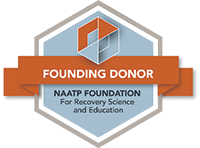VETERAN SUBSTANCE ABUSE TREATMENT IN HOUSTON, TEXAS
Veterans are especially susceptible to substance use disorders because of the hardship they experience in the military. At Magnolia City Detox, our veteran substance abuse programs are available for those seeking addiction counseling in The Woodlands, TX.
A veteran can seem tough and hardened on the outside while being broken on the inside. The reality of military service is that it can cause a lifetime of pain and suffering. Sadly, many veterans do not seek treatment for addiction because of the perceived stigma around seeking help for mental health issues. Instead, many veterans turn to drugs and alcohol to ease the pain.

Request a Confidential Callback
Why is it Common for Veterans to Suffer From Addiction?
Veteran Alcohol Misuse
Veteran alcohol misuse is a leading problem affecting our country. The excessive use of alcohol on military bases has led to a massive alcohol dependency problem for men and women who have served in the armed forces. Following rigorous training and combat mission, many soldiers “take the edge off” by drinking alcohol. Drinking after work is not a healthy pattern, especially after soldiers have returned home.
Alcohol as a Coping Mechanism
Instead of having healthy coping mechanisms, soldiers deal with their problems by drinking alcohol. Following service, veterans struggle to function in their civilian life. Excessive drinking can lead to unwanted health issues and mental damage. Alcoholism can cause people to become angry and violent when they are under the influence. It also leads to mental illnesses such as depression and anxiety.
Drinking alcohol can temporarily relieve pain, but it is not a long-term solution. While in the military, soldiers may be used to binge drinking every night with their comrades. During this time, these men and women may not even realize they have developed an alcohol addiction. Only when returning to everyday life do veterans realize they can’t control their drinking habits.
After returning from service, it is important to have healthy coping skills. It is necessary to talk about your thoughts and feeling with a trusted loved one or a licensed therapist. It is not a sign of weakness to share your emotions. It is a brave action to seek help when you are in need.
Statistics of U.S. Veterans With Substance Addiction
According to the American Addiction Center, Marijuana is the leading drug used, followed by heroin. Heroin accounts for 10%, and cocaine accounts for 6% of all admissions to veteran substance abuse programs. When veterans no longer have access to prescription drugs, they may turn to illicit drugs to achieve the same relief. At our heroin detox center, we accept veterans dealing with addictions to opioids, and other substances.
Of all veterans with substance addiction, 4 out of 5 struggle with alcohol. A study on soldiers after returning home showed that 25% misused alcohol and 12% showed behavioral problems related to alcohol. This has led to harsh criticism of the leaders of the U.S. military.
The most concerning statistic about veteran substance addiction is that 90% do not receive addiction treatment. It is crucial that veterans seek treatment when diagnosed with a substance addiction. Healthcare providers should be aware of the struggles that veterans face so they can have proper resources available.
Substance addiction can affect anyone at any point in time. However, people who have experienced hardship and trauma may be more susceptible. Addiction can quickly take hold of your life, but here is hope for vets in need of treatment. Veteran substance abuse programs have the means necessary to treat our country’s heroes.







